REVIEW: Pits, People and Players, Ensemble ’84, Horden
Fledgling theatre company excels again
Ensemble ‘84 announced its presence in the North East – in the County Durham village of Horden, unlikely as that might seem – back in the spring with a triumphant production of Brecht’s Mother Courage.
That was a collaboration with the acclaimed South African company, Isango Ensemble.
Could the County Durham players – mostly raw recruits trained by Mark Dornford-May, founding artistic director of both ensembles and director of this show – hack it on their own?
I can’t have been the only one asking myself that question as I took my place in the auditorium which, as a former Methodist church, is more rough and ready than grand circle luxury.
Afterwards, in fact, one of the actors confessed they’d been asking it of themselves.
The answer came in seconds. Of course they could.
This second production, home-grown and with the company credited as writer, shares many of the qualities of the first – the dynamism, the ingenuity, the confident delivery.
Ninety minutes, no interval (just as well – front-of-house facilities are a porch and a patch of grass) but not a second where interest flags.
The approach (for theatre buffs) is somewhat Brechtian, a bit of banter before our story begins and with the props, including those to serve as instruments, visible on stage.
Then the lights dim and Pow! - a show celebrating the village’s 125th anniversary gets under way.
The supremely well drilled cast of 10 (six men, four women) deliver Horden’s history through song and storytelling, passing the narrative from one to another and sometimes forming a chorus to sing or make percussive noise. Impressively, they don’t miss a beat.
There’s no getting away from the fact that Horden’s story is largely coal-related.
The Anglo Saxons get a fleeting mention and there’s a brief harking back to the days when this was a patch of farmland which the Industrial Revolution seemed to have passed by.
But in 1900 Horden Collieries Ltd was formed and the landscape changed forever. Cue a company rendition of We’re in the Money with a nod to Busby Berkeley.
Money was certainly being made but by whom? There aren’t too many signs of it around Horden these days. This is no Wynyard or Darras Hall.
But we learn how the coal bosses prospered during the early years and through two world wars. European production records were set and Horden became a ‘super-pit’.
The population grew accordingly, people arriving from all over to descend to the dark depths.
Cast members as researchers didn’t have to dig deep to find the flip side to pit owner profits.
The hardship which came with coalmining is there to be found in library archives and oral histories – and many still remember.
In front of me a woman sang along to Women of the Working Class, the Mal Finch song adopted as the anthem of the wives galvanised into action by the 1984-5 miners’ strike.
Another which gets an airing is Alex Glasgow’s famous song which goes: “Close the coalhouse door, lad. There’s blood inside…”
There is indeed. Or was. Cast members, mostly drawn from communities born of coal, recall some of the many tragedies.
Among the statistics doled out (reminiscent of another landmark show, Joan Littlewood’s Oh, What a Lovely War!) is that Horden lost 251 lives in two world wars and a further 171 to industrial accidents.
Some of the victims were very young. In early times, men with families were favoured because their kids could also work underground, meaning the economy of several workers housed under one roof.
Coal owners knew how to extract every last penny from the seams of ‘black gold’, creating conditions that would lead to unionisation and ultimately strike action.
Mostly the miners came off worst, even if they did bring down the Heath government in the early 1970s.
Maggie Thatcher, having learned a lesson, wreaked revenge a few years later. You’ll find no statue to her round here nor conciliatory words in this show.
Horden Colliery, we learn, was dismantled in 1987 – so what of the last 38 years of this now former pit village’s history?
We don’t find out a great deal, to be honest.
Among quotes gleaned from local residents, a teenager says you don’t need much money in Horden because it has a great beach and park. A convicted drug dealer who suggests he was providing a service is given short shrift.
The place has its problems, of course, but equally evidently there’s loyalty and great spirit here – and it does have a very good professional theatre company.
Not many former pit villages can claim that.
Pits, People and Players runs until Saturday, August 23 but is completely sold out. Keep an eye on the Ensemble ’84 website for news of future developments – and take note that Mother Courage is being revived at Live Theatre, Newcastle, in the autumn.
Meanwhile, credit to the cast of this show – Bryn Chaytor-Wilson, Mia Cummings, Brodie Daniel, Joseph Hammal, Wendy Hindmarsh, Keith Irons, Stephen Lister, Sophie Moss, Willow Pearson and Phil Swinburne – and to a creative team which includes choreographer Lungelo Ngamlana, songwriter Jodie Nicholson, lighting designer Drummond Orr and, frequently stepping forward to ramp up the emotion, trumpet player David Harrison.



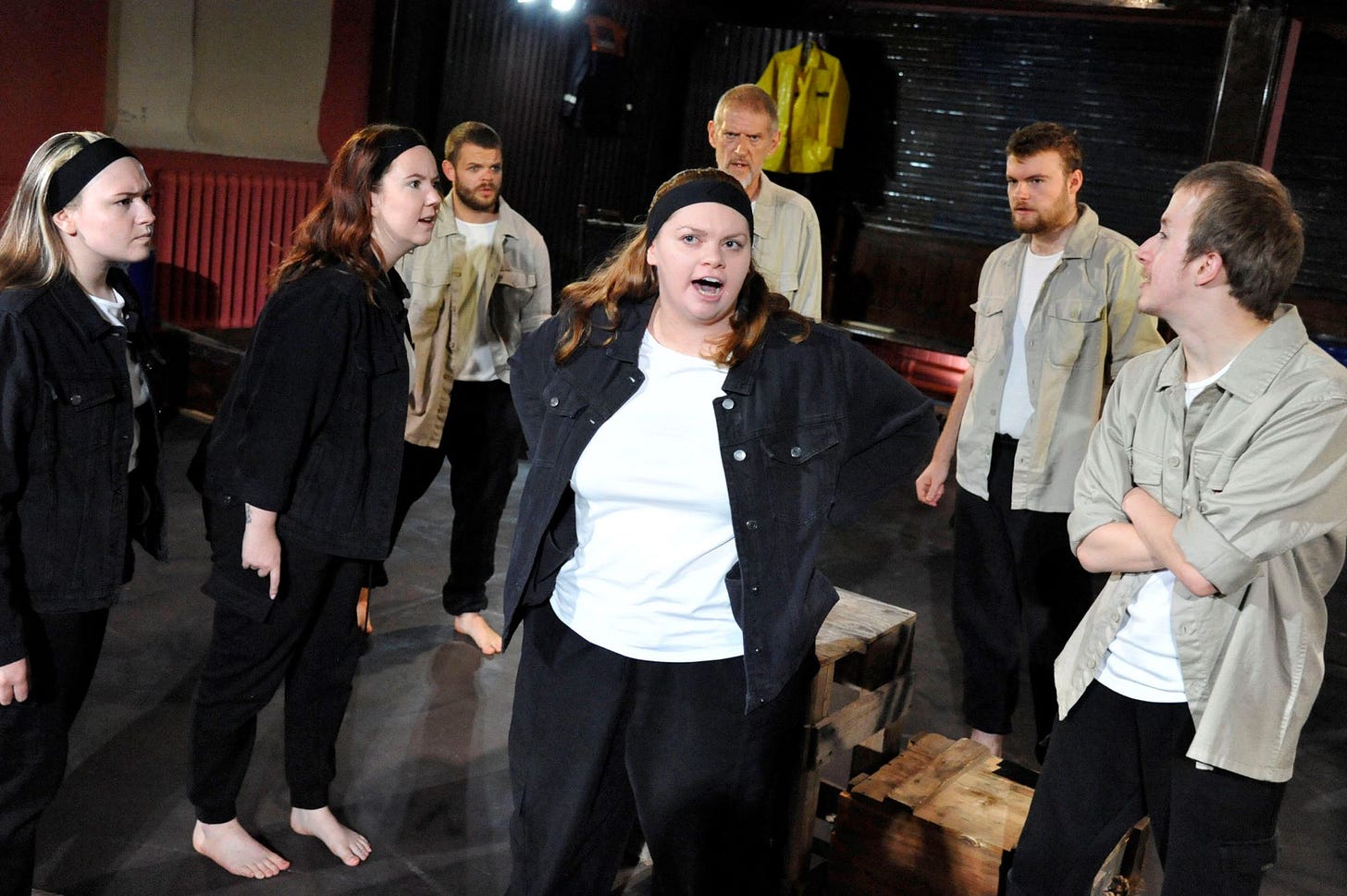
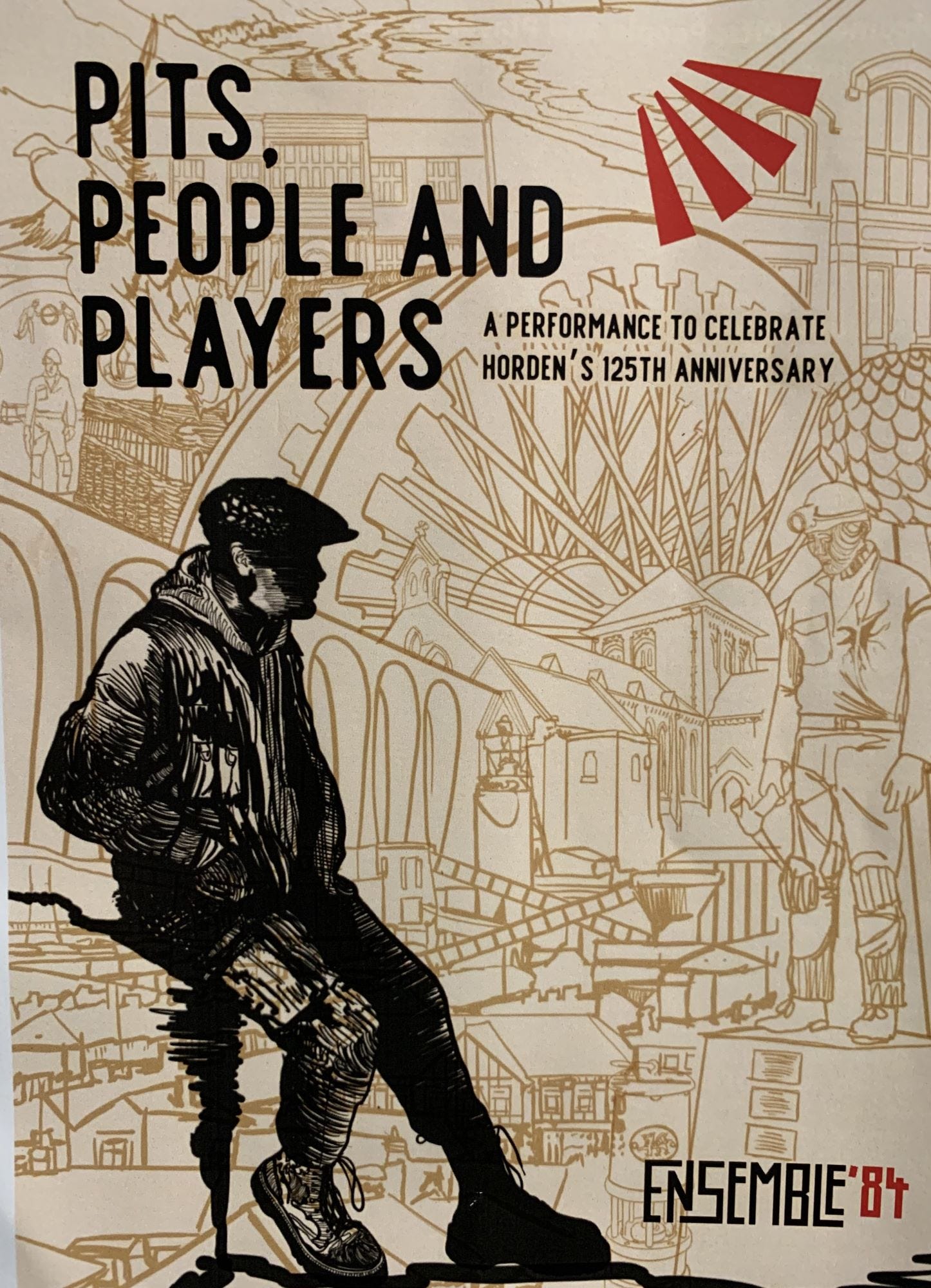
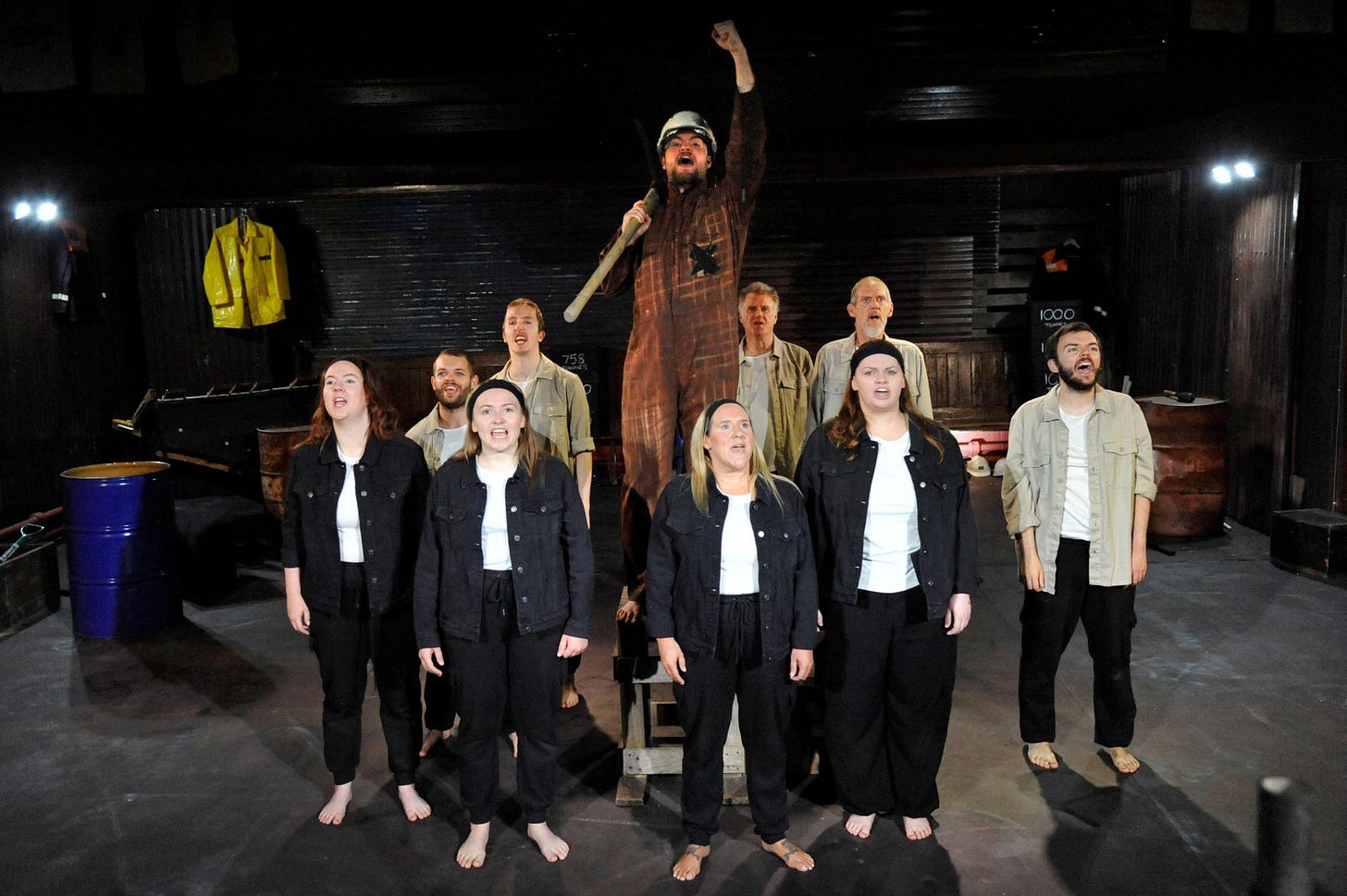
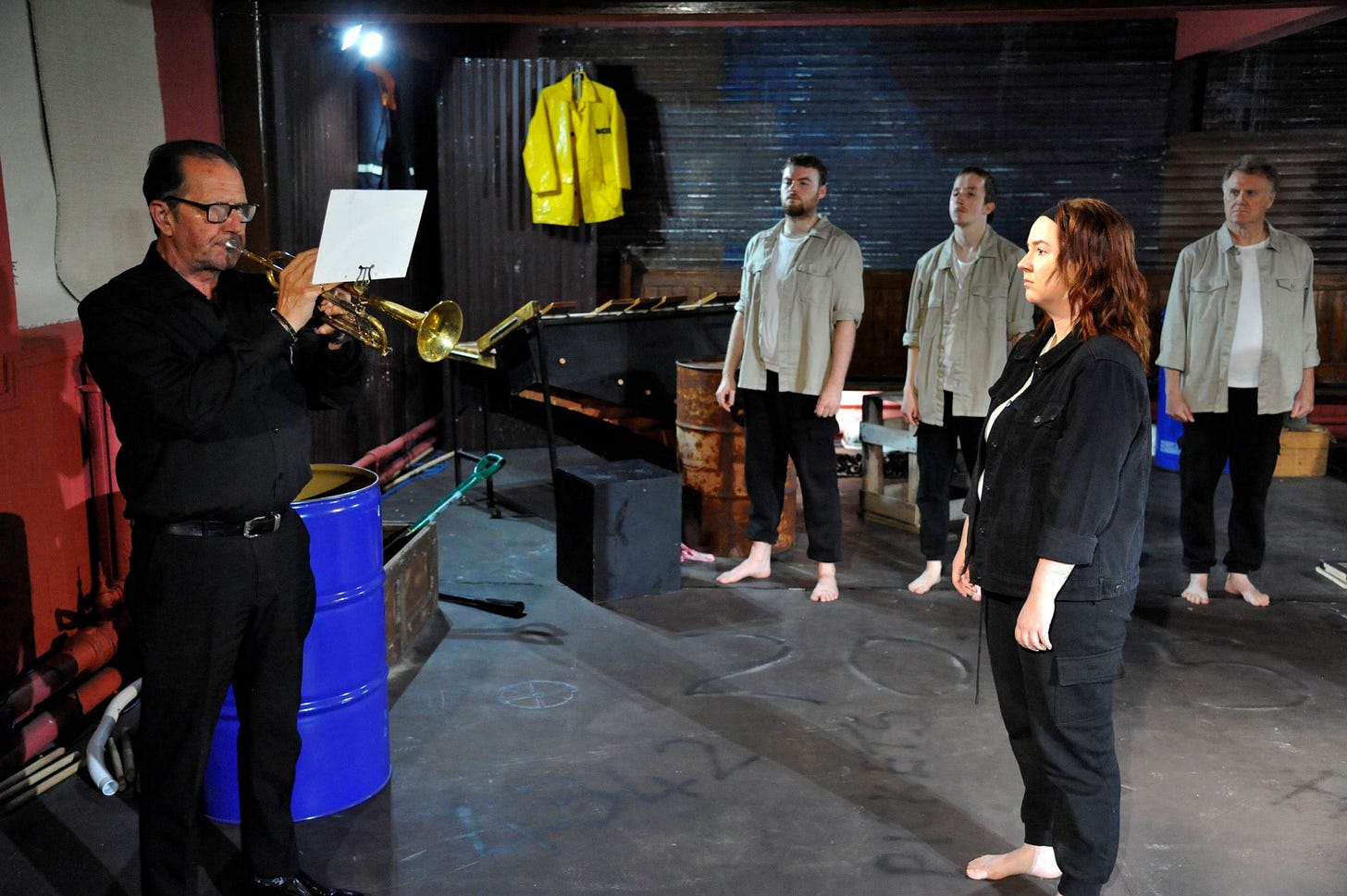
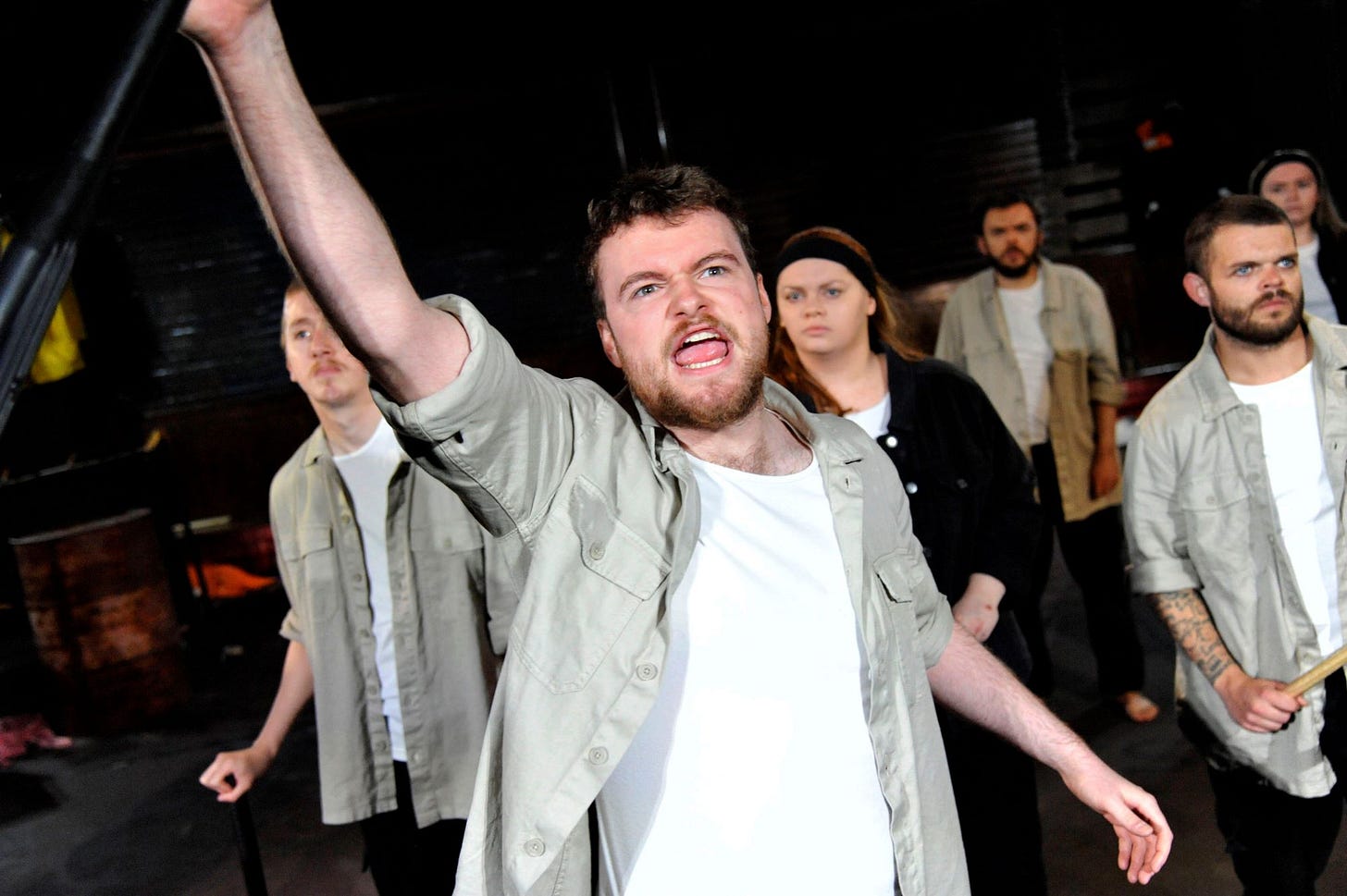
Great review for an amazing Theatre Company ! Just a note on Horden Methodist Church, it is not a former Methodist Church, it remains a consecrated building and is registered for the marriages of any two people, I know because I am the minister of the church, the congregation meets elsewhere to make space for the Theatre Company, but the church remains the property of The Methodist Church UK.
I have the privilege of dropping in and getting to know the whole crew, wonderful people!